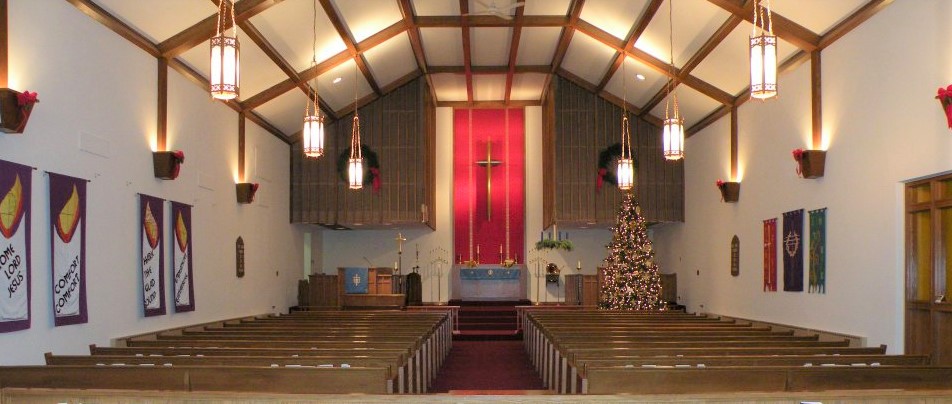May 10, 2020
E5A 2020 John 14:1-14
This has been an interesting last week or so. We are still, of course, living through
the strange new world of the pandemic. That was probably enough for most of us, but
then we started to hear reports of what they’re calling the “murder hornets” and although
it would seem like they are too few and too far away to concern us, ‘better safe than
sorry’ has taken on new meaning lately. And then, even though it’s May, it has snowed
for the last two days, which is not unheard of but is certainly abnormal. I would ask
“What’s next?” but I’m not sure I want to know or that anyone could accurately guess.
God only knows at this point, and maybe that is for the best.
John devotes several chapters in the middle of his gospel to Jesus preparing the
disciples for what’s next, which in the immediate future includes Jesus’ arrest, trial, and
crucifixion of Jesus, and then eventually his resurrection and ascension to the Father.
This story is old news to us, but it’s a remarkable, life-change, world-changing story
nonetheless. I often think how lucky the disciples were to get to live during Jesus
lifetime, but the disciples also had to live through the harder parts of Jesus life and death
—watching one disciple betray him, hearing one disciple deny him, feeling the tide of
public opinion turn as the crowds who cheered for him at the beginning of the week
shouted for his death by the end of the week. The disciples would have been overjoyed
to see Jesus alive again, but first we can imagine they were scared out their wits when he
first appeared inside the locked upper room.
In spite of Jesus’ instruction, the disciples don’t quite understand or expect what’s
coming next. Thomas, thinking that Jesus is telling them he’s headed to a literal,
geographic location, speaks the disciples’ confusion: Lord, we do not know where you
are going. How can we know the way? At that point, Jesus could have been clearer and
more specific about what the disciples were about to witness, but instead of Jesus telling
them exactly where they’re headed, Jesus tells them what’s more important than where;
Jesus tells them who. I am the way, the truth, and the life. The disciples don’t need to
know exactly what is going to happen next, the disciples need to know who will help
them through what’s going to happen next—Jesus himself.
After Thomas reveals that he doesn’t quite know what is going on, and doesn’t
exactly get a straight answer, Philip decides to get in on the game. Lord, show us the
Father, and we will be satisfied. Setting aside Philip’s audacity at telling Jesus what to do
to satisfy the disciples, which wasn’t really Jesus’ central concern, Philip inadvertently
reveals that he and his companions have missed what Jesus has been doing throughout
the entire gospel. In John’s gospel, Jesus’ miracles are always referred to not as miracles
but as signs, and those signs are supposed to be pointing toward God. Jesus spends his
public ministry trying to show people the nature of God; Philip and the other disciples
seem to have witnessed all the signs and missed what they were advertising.
Jesus’ answers to Thomas’ and Philip’s questions are maybe more useful to us
today than they have ever been. Lord, we don’t know where you are. How can we know
the way forward? Just show us where the Father is in all of this and we’ll be OK. We,
too, are going to struggle in these uncertain times, not knowing what is next, not able to
easily see God’s presence in the midst of suffering, disease, financial hardship, isolation,
and death. And so Jesus reminds us, I am the way, the truth, and the life. We don’t get to
know what’s coming next, how all of this is going to turn out for us personally or for our
community; but what we do get is the assurance that wherever we are, Jesus is there also.
And knowing that Jesus reveals the nature of God to us, we can better interpret the signs
that the first disciples missed. Jesus turns water into wine and feeds 5,000 people? God is
a god of abundance; we can see God at work in this time when those who still have
plenty share with those who have run short. Jesus heals the blind and the paralyzed?
God is a god of healing and wholeness; we can see God at work in this time when doctors
and nurses and all the many other healthcare workers help restore those who are ill; and
we see God at work in us when we put aside what is convenient or comfortable in order
to protect those whose health is more vulnerable. Jesus walks on water? God is a god
who comes to us to bring peace; we can see God at work in this time when we reach out
or when we are greeted by someone who is just checking to make sure we’re OK in this
dark and chaotic time. Jesus brings Lazarus back from the dead? God is the god of life;
we see God at work in this time sustaining our lives even if our lifestyle has been put on
hold, and promising to restore what this world destroys, even those aspects of life that
seem beyond hope.
I don’t know what comes after coronavirus, murder hornets, and May snowstorms.
But I do know that our God of abundant life promises us peace today and grace sufficient
for all our tomorrows. And with that, I will be satisfied.

